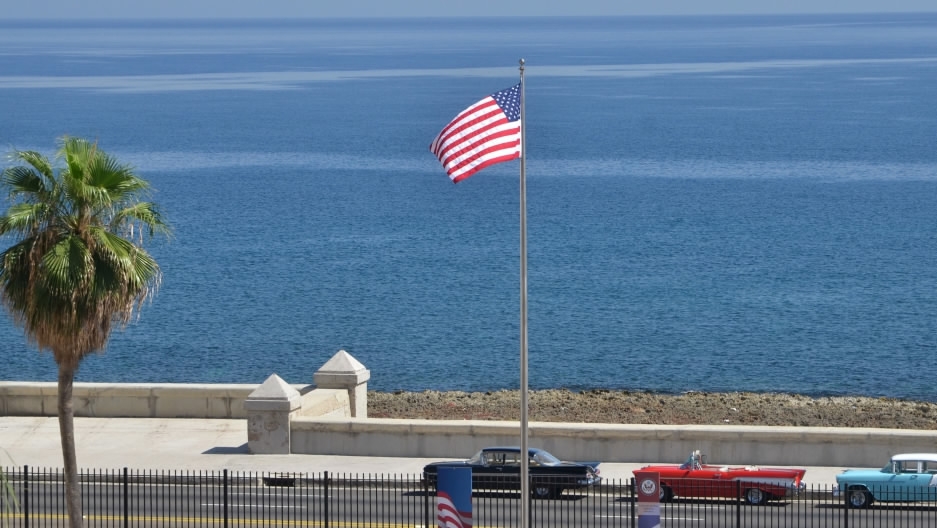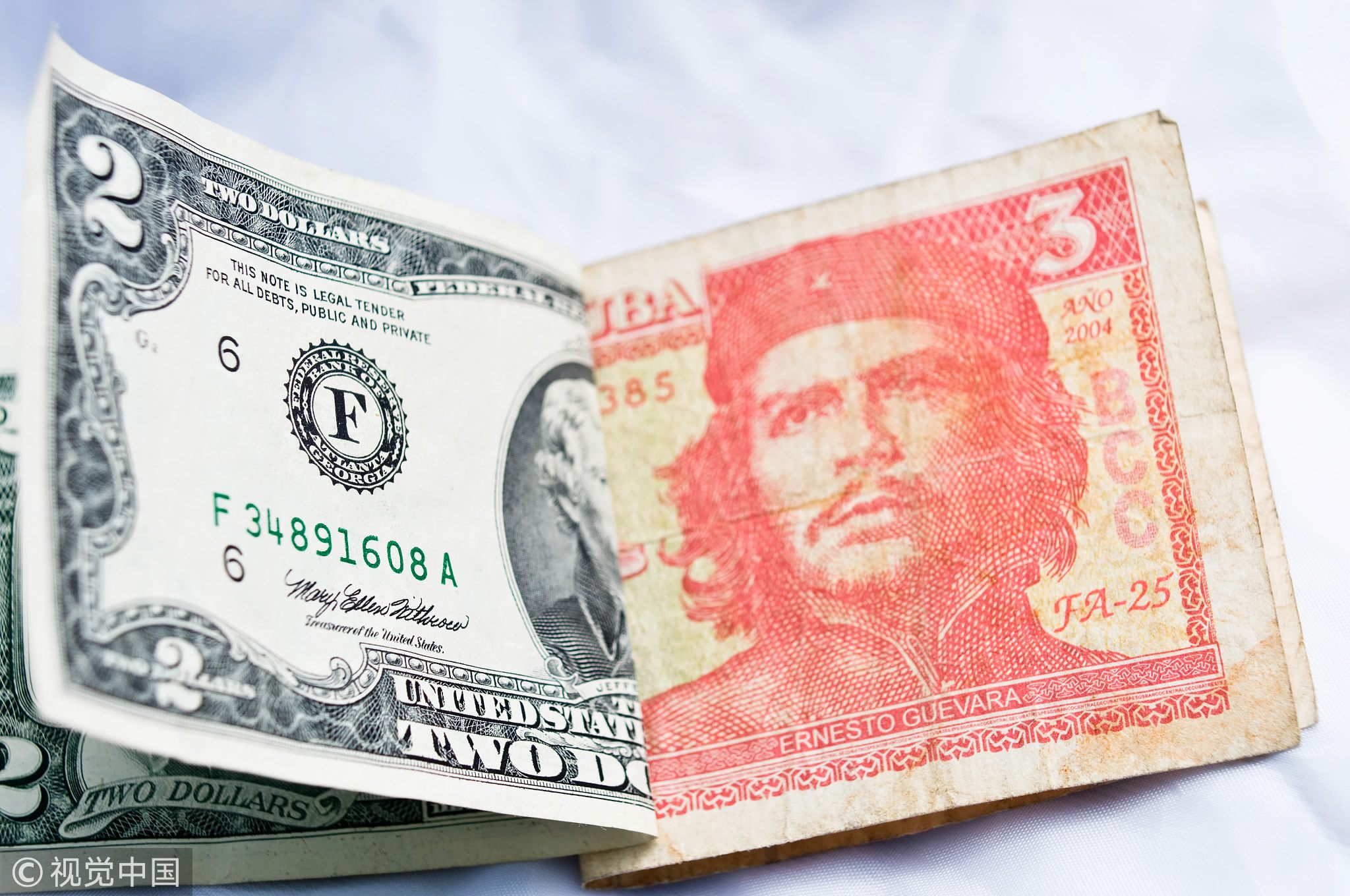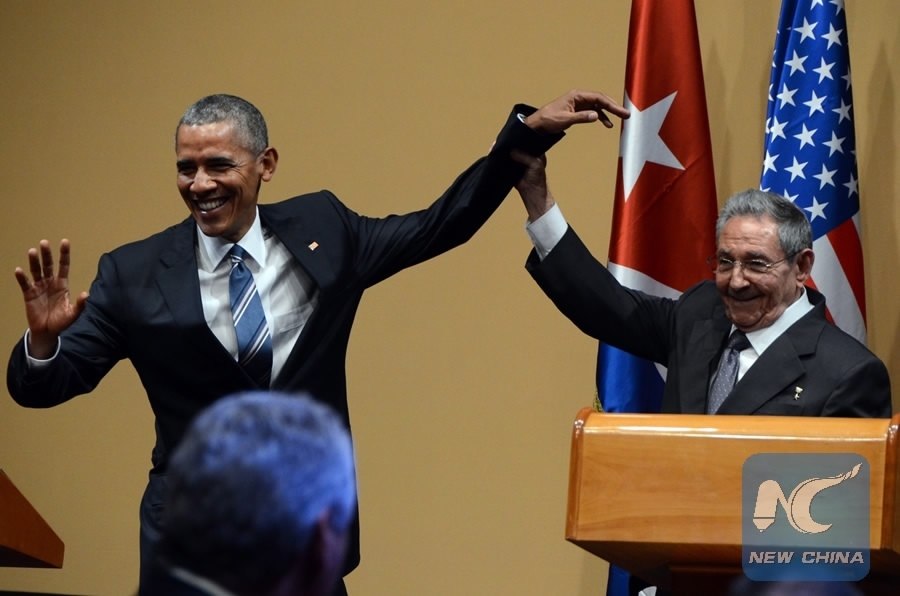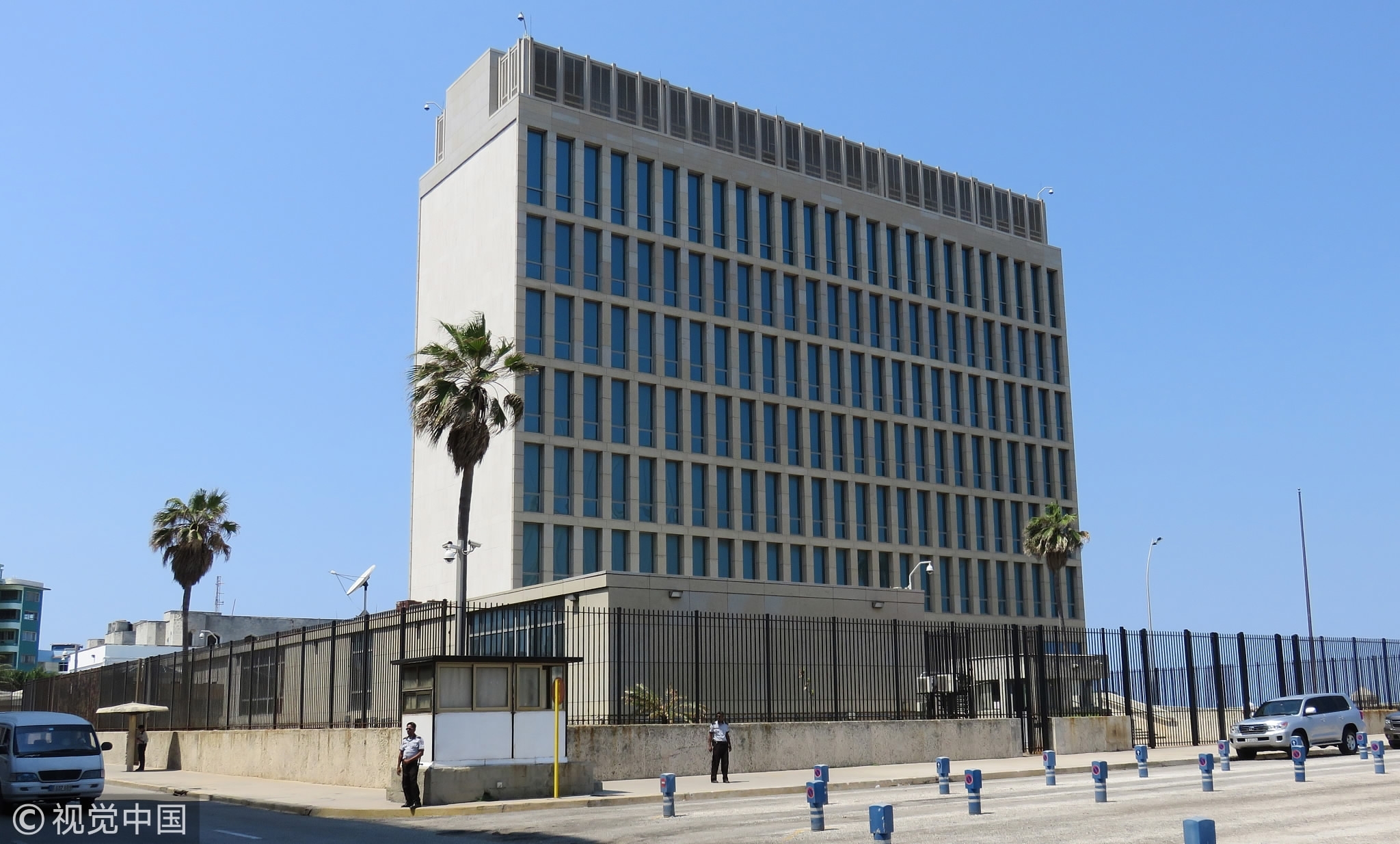
World
17:54, 06-Mar-2018
US embassy staff cuts 'financial punishment,' says Cuba
By Bertram Niles

The government of Cuba has condemned permanent staff cuts at the United States embassy in Havana as politically motivated and said they would inflict "financial punishment" on Cuban citizens.
The US insists that the move announced on Friday was in response to "health attacks" that left some diplomats with hearing loss and other ailments. Cuba has denied any wrongdoing although the US government has not accused the authorities in Havana of being behind the incidents, for which no cause has been determined.
Whatever the reason, the move has confirmed an added headache for Cubans seeking American visas.

Cuba is keen to attract more American spending in the country. /VCG Photo
Cuba is keen to attract more American spending in the country. /VCG Photo
When the Trump administration first slashed staffing at the mission by 60 percent in September, the embassy stopped visa processing, except in exceptional circumstances or in cases of official diplomatic travel.
Now that the changes have been formalized, it means that Cuban citizens will still need to travel to third countries to apply for US visas – a costly and time-consuming exercise that has left many frustrated.
The new head of the United States Office at the Cuban Foreign Ministry, Carlos Fernandez de Cossio, said on Monday that the staff cuts have "no relationship whatsoever" to the safety and security of US representatives in the Cuban capital.
He said there was no evidence to back the charge of "attacks" against American diplomats.

Cuba's President Raul Castro (R) and then US President Barack Obama reacting at a press conference at the Revolution Palace in Havana on March 21, 2016. /Xinhua Photo
Cuba's President Raul Castro (R) and then US President Barack Obama reacting at a press conference at the Revolution Palace in Havana on March 21, 2016. /Xinhua Photo
The cuts will hurt consular services and make travel more difficult for ordinary citizens who will now be forced to incur additional expenses in traveling abroad for visas, Fernandez de Cossio said.
"In this way, the United States has imposed financial punishment on tens of thousands of people, as well as anguish and insecurity in their relations with their relatives and close friends," he fumed. "It is a measure with a humanitarian cost for which the government of the United States is responsible."
The State Department had said it would process Cuban family reunification requests at the Bogota embassy instead and an official acknowledged that the change will severely inconvenience applicants.
Bogota, the capital of Colombia, is an approximate three-hour flight from Havana, and Colombia requires Cuban visitors to obtain visas.
Fernandez de Cossio also criticized the renewal of the alert that recommends US travelers reconsider visits to Cuba as "another hostile and defamatory action."
The staff cuts and travel alert decisions came despite a petition from 33 tour operators and Cuba educational travel specialists "to restaff the embassy and change Cuba's travel advisory from a level 3 ('reconsider travel') to a level 2 ('exercise increased caution') and to only designate the parts of Havana where the health incidents took place as level 3," Travel Weekly reported on its website.

The US embassy in Havana /VCG Photo
The US embassy in Havana /VCG Photo
"A level 3 rating is not justified for Cuba since there are no confirmed cases of private citizens or travelers contracting symptoms similar to the diplomats," the publication quoted Andrea Holbrook, CEO of Holbrook Travel, as saying. "We've been operating in Cuba since 2000. Cuba remains one of the safest destinations in which we operate."
Relations between Havana and Washington have deteriorated since President Trump took office in January last year. He had promised to roll back Obama-era policies that had ended the US diplomatic isolation of the communist-run nation.
What happens next will be a major challenge for the successor to President Raul Castro who has said he will step down next month.

SITEMAP
Copyright © 2018 CGTN. Beijing ICP prepared NO.16065310-3
Copyright © 2018 CGTN. Beijing ICP prepared NO.16065310-3